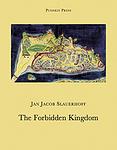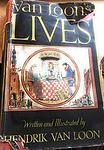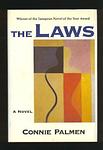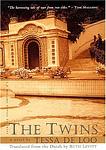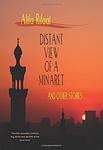The Greatest Dutch, Egyptian "Fiction" Books Since 1900
Click to learn how this list is calculated.
This list represents a comprehensive and trusted collection of the greatest books. Developed through a specialized algorithm, it brings together 300 'best of' book lists to form a definitive guide to the world's most acclaimed books. For those interested in how these books are chosen, additional details can be found on the rankings page.
Genres
Countries
Date Range
Reading Statistics
Click the button below to see how many of these books you've read!
Download
If you're interested in downloading this list as a CSV file for use in a spreadsheet application, you can easily do so by clicking the button below. Please note that to ensure a manageable file size and faster download, the CSV will include details for only the first 500 books.
Download-
1. Woman at Point Zero by Nawal El Saadawi
"Woman at Point Zero" is a powerful novel about a woman named Firdaus who, after a life filled with hardships and abuse, finds herself on death row in an Egyptian prison. The narrative explores her life story, from her childhood of poverty and genital mutilation to her experiences with domestic violence, prostitution, and finally murder. Through her journey, the book offers a profound critique of patriarchal society and the systemic oppression of women.
-
2. The Discovery of Heaven by Harry Mulisch
"The Discovery of Heaven" is a philosophical novel that explores the relationship between mankind and the divine. The story revolves around two friends, an astronomer and a philologist, who are manipulated by heavenly forces to father a child who is destined to return the Ten Commandments to God. As the narrative unfolds, it delves into complex themes such as friendship, love, art, science, and the existence of God, presenting a thought-provoking analysis of the human condition.
-
3. Children of Gebelawi by Naguib Mahfouz
"Children of Gebelawi" is a novel that allegorically presents the stories of Moses, Jesus, and Mohammed through the lives of characters in a Cairo neighborhood. The patriarch, Gebelawi, has five children, each representing a different prophet or religious figure, and their struggles mirror the religious and philosophical conflicts of the 20th century. The book explores themes of power, faith, and redemption, and it sparked controversy upon publication due to its portrayal of sacred figures.
-
4. Palace Walk by Naguib Mahfouz
The novel is set in Cairo during World War I and revolves around the life of a conservative Muslim family. The patriarch, a shopkeeper, has two wives and several children, and the story explores the dynamics within the family, particularly the tyrannical father's relationships with his wives and children. As the family navigates through a changing society, they encounter various challenges including political unrest, societal norms, and the struggle between tradition and modernity.
-
5. The Cairo Trilogy by Naguib Mahfouz
"The Cairo Trilogy" is a captivating tale set in Egypt during the early 20th century, following the lives of the Abd al-Jawad family. The trilogy explores the intricacies of family dynamics, societal changes, and political unrest, as it delves into the personal struggles and triumphs of its characters. With vivid descriptions and rich storytelling, the trilogy offers a deep insight into the complexities of Egyptian society, tradition, and modernization, making it a timeless masterpiece of literature.
-
6. Miramar by Naguib Mahfouz
Set in 1960s Egypt, "Miramar" tells the story of an aging revolutionary, a rich man's daughter, a corrupt journalist, and a real estate agent who all come to reside at the Miramar Pension in Alexandria. Their lives intertwine with the life of the young peasant woman who works there as a maid, and through their interactions, the novel explores themes of social and political change in Egypt, the struggle between old and new, and the power of the individual to shape their own destiny.
-
7. Midaq Alley by Najib Mahfuz
Set in an old Cairo neighborhood during World War II, the novel delves into the lives of the residents of a bustling alley, offering a tapestry of human experiences and social issues. Through the stories of a diverse cast of characters, including a young beauty dreaming of a better life, a wealthy businessman seeking love, a cafe owner yearning for his past, and others, the narrative explores themes of love, ambition, and the struggle for personal fulfillment. The alley serves as a microcosm of society, reflecting the larger cultural and political changes occurring in Egypt at the time, and the characters' intertwined lives illustrate the complexities of human nature and the universal quest for happiness and meaning.
-
8. All Souls' Day by Cees Nooteboom
"All Souls' Day" is a novel about a Dutch documentary filmmaker, who, after losing his wife and daughter in a car accident, moves to Berlin to escape his grief. The protagonist becomes entangled in a series of romantic relationships while struggling to come to terms with his loss. The book blends narrative with philosophical musings on memory, loss, and the nature of time, using the city of Berlin as a backdrop to illustrate the protagonist's internal journey.
-
9. Return to Oegstgeest by Jan Wolkers
"Return to Oegstgeest" is a semi-autobiographical narrative that explores the author's childhood and adolescence in the small Dutch town of Oegstgeest during the pre and post-World War II era. The book delves into the author's troubled relationship with his stern, religious parents, his struggles with faith, and his burgeoning artistic and sexual awakening. The narrative is a poignant exploration of memory, family, and the experiences that shape one's identity.
-
10. Forever a Stranger by Hella S. Haasse
"Forever a Stranger" is a historical novel set in the 19th-century Dutch East Indies, now known as Indonesia. It tells the story of Rudolf, a half-Dutch, half-Javanese boy, who is raised by his Dutch father after his Javanese mother's death. Throughout his life, Rudolf grapples with his mixed heritage and struggles to find a sense of belonging, experiencing the harsh realities of colonialism and the cultural divide between the Dutch and the Javanese. The narrative provides a critical examination of colonialism and its impact on identity, culture, and society.
-
11. The Garden Where the Brass Band Played by Simon Vestdijk
This novel explores the life of a young boy named Nol Rieske, who falls in love with the daughter of a bandmaster in a small Dutch town. As he grows older, he becomes a successful musician, but his obsession with the bandmaster's daughter, who is mentally ill, continues to dominate his life. The story is a detailed exploration of a man's lifelong infatuation and its profound impact on his personal and professional life.
-
12. The Forbidden Kingdom by Jan Jacob Slauerhoff
"The Forbidden Kingdom" is a historical fiction novel that intertwines the stories of two men, a 20th century sailor and 16th century Portuguese poet, Luis Camões. The narrative alternates between the two, exploring the sailor's obsession with the poet's life and the poet's experiences in the East, including his journey to Macao. The book delves into themes of identity, obsession, and the clash of Eastern and Western cultures.
-
13. Old People And The Things That Pass by Louis Couperus
This novel delves into the hidden secrets and unspoken truths of an elderly couple, revealing the profound impact of their concealed affair on their family across generations. As the narrative unfolds, it exposes the complexities of human relationships and the consequences of past actions, illustrating how secrets can ripple through time, affecting not just those who keep them but also their descendants. The story masterfully explores themes of guilt, redemption, and the inescapable nature of the past, all while painting a poignant picture of aging and the inevitable passage of time.
-
14. Rituals by Cees Nooteboom
"Rituals" is a philosophical novel that explores the lives of three men, each dealing with existential crises in post-World War II Netherlands. The narrative delves into their individual searches for meaning and purpose, their struggles with societal norms, and their attempts to establish personal rituals as a way to create order in a seemingly chaotic world. The book is a profound meditation on the human condition, examining themes of time, death, and the nature of reality.
-
15. Smell of Sadness by Alfred Kossmann
"Smell of Sadness" is a poignant narrative that revolves around a man who, after being separated from his wife during the Second World War, embarks on a journey to find her. The story takes us through the protagonist's experiences, his encounters with various people, and his personal struggles. The book is a deep exploration of human emotions, particularly the profound sadness that permeates through the protagonist's life, making it a moving and thought-provoking read.
-
16. Van Loon's Lives by Hendrik Willem van Loon
The book in question is a unique blend of biography, autobiography, and fantasy, where the author imagines inviting historical figures from different eras to dinner at his home. Through a series of lively conversations and interactions, the author and his guests explore the lives and thoughts of these famous individuals, ranging from philosophers and scientists to artists and rulers. The narrative provides a creative and insightful look at history, as well as the author's own musings on life, culture, and human progress, all while blurring the lines between past and present in an engaging and whimsical manner.
-
17. Gimmick! by Joost Zwagerman
"Gimmick!" is a novel that explores the life of a young artist in the Amsterdam art scene during the 1980s. The protagonist is caught in a world of excess, parties, drugs, sex, and betrayal while trying to find his place and make a name for himself. The story delves into the struggles of artistic life, the lure of fame and the pitfalls of success, providing a raw and gritty depiction of the times.
-
18. Two Women In One by Nawal El Saadawi
The novel explores the internal and external struggles of a young Egyptian woman who aspires to be a dancer and artist, defying the traditional gender roles and societal expectations imposed upon her. As she pursues her passion, she faces oppression and resistance from a patriarchal society that seeks to control women's bodies and minds. The protagonist's journey is one of self-discovery and rebellion, as she battles to reconcile her desires with the harsh realities of her environment, ultimately striving to forge her own identity and find freedom within a repressive cultural landscape.
-
19. The Laws by Connie Palmen
"The Laws" is a philosophical novel that follows the life of a young woman studying philosophy who becomes intrigued by the concept of laws, both societal and personal. Over the course of seven years, she engages in relationships with seven different men, each representing a different aspect of her studies including a priest, a physicist, an artist, a psychiatrist, a lawyer, a biologist, and a writer. Each relationship provides a new perspective on her quest to understand the laws of the universe and human nature.
-
20. Zayni Barakat by Jamal al- Ghitani
"Zayni Barakat" is a captivating novel set in 19th-century Egypt, following the life of Zayni Barakat, a young man caught in the midst of political and societal turmoil. As he navigates through a world of corruption, power struggles, and forbidden love, Zayni's journey becomes a reflection of the struggles faced by the Egyptian people. Through vivid storytelling and rich historical context, the book explores themes of identity, revolution, and the complex dynamics of a nation on the brink of change.
-
21. The Twins by Tessa De Loo
"The Twins" is a poignant narrative about twin sisters, separated at a young age due to the Second World War. One sister grows up in the Netherlands under Nazi occupation, while the other is raised in Germany as part of the Hitler Youth. After six decades of separation, they meet again and begin to share their experiences, discovering the impact of the war on their lives and the stark differences in their upbringing. The book explores themes of identity, loyalty, and the long-lasting effects of war on individuals and families.
-
22. Distant View Of A Minaret by Alifa Rifaat
The book is a collection of short stories that delve into the lives of women in contemporary Egyptian society, offering a poignant and often stark portrayal of the challenges they face. Through the lens of various female protagonists, the stories explore themes of sexuality, marriage, fidelity, and the role of women within the constraints of a patriarchal culture. The narratives often highlight the inner lives and suppressed desires of these women, revealing the gap between personal aspirations and societal expectations. The title story epitomizes the collection's essence, presenting a woman's reflection on her unfulfilling marriage and her yearning for spiritual and emotional fulfillment, symbolized by the distant view of a minaret.
-
23. The Open Door by Latifa Zayyat
The novel explores the journey of a young Egyptian woman during the 1940s and 1950s, a period of political turmoil and social change in Egypt. As she comes of age, the protagonist grapples with the constraints of traditional societal expectations and her desire for personal and intellectual freedom. Her story intertwines with the broader narrative of her country's struggle against British colonialism and the quest for national identity, reflecting the broader themes of liberation and self-determination. Through her experiences, the book delves into issues of gender, politics, and the quest for meaning in a rapidly changing world.
-
24. Abessijnse Kronieken by Moses Isegawa
"Abessijnse Kronieken" is a powerful and captivating novel set in Uganda during the tumultuous era of Idi Amin's dictatorship. The story follows the life of Mugezi, a young man navigating through the complexities of love, family, and political upheaval. With richly drawn characters and vivid descriptions, the book explores themes of identity, cultural clash, and the struggle for freedom in a country torn apart by corruption and violence.
-
25. The Map Of Love by Ahdaf Soueif
This novel intricately weaves together the lives of two women, separated by a century, who find themselves connected through a shared history and a mysterious collection of letters and journals. Set against the rich backdrop of late 19th and 20th-century Egypt, the story explores themes of love, politics, and the enduring impact of colonialism. As the modern-day protagonist delves into the past, she uncovers a passionate love affair between her ancestor, an Englishwoman, and an Egyptian nationalist. This discovery leads her on a journey of self-discovery and a deeper understanding of her cultural heritage, revealing the complexities of identity, the power of love, and the intricate map of human connections that transcends time and place.
Reading Statistics
Click the button below to see how many of these books you've read!
Download
If you're interested in downloading this list as a CSV file for use in a spreadsheet application, you can easily do so by clicking the button below. Please note that to ensure a manageable file size and faster download, the CSV will include details for only the first 500 books.
Download









